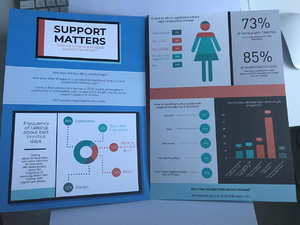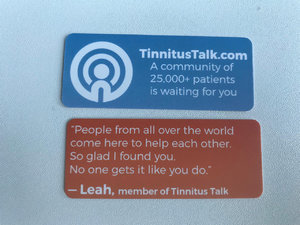(Talking Tinnitus Expo, the day after):
Got up early today, my tinnitus was screaming.
I've also shed some tears, yesterday knocked me for six and today am feeling deflated and a bit lost.
Lots of stories to take in. We were all fully engaging with people, which I felt was important, as when I went to the last BTA conference, meeting people provided me with comfort so wanted to do the same for them.
Many of them were accompanied by well meaning friends or partners but I couldn't help feel that it's a lonely burden to carry, that only "club members" truly understand. That in our day-to-day life we are on our own.
Echoing
@Jazzer's comments, I wish I could just take it away from all of them.
Then I remind myself of how we have this forum to connect with each other and how just because it's not face to face one still gets to know people and sometimes in a more intimate way.
That as a community we have a strong voice and that people are starting to take the condition seriously, which was my main take-home message, given the increase in research activity.
For that we have
@Markku and
@Steve to thank. Your devotion to this cause is laudable and I can't express my gratitude enough.
@Steve - I'd read some of your posts and knew you were a sound guy. In person you are ray of sunshine. I felt cross at myself for getting so upset today, knowing that you engage with people in distress all the time and just want to give you a virtual hug.
@glynis - I thanked you yesterday for being always there for everyone on the site, what an amazing contribution.
@Hazel - such a doer, didn't get to say au revoir, I wish you lots happiness in your next adventure.
@Jazzer - what a charming gent, thank you for being there yesterday and making me smile.
@Angeline - you gave me hope, you are a trooper and hope one day we can share a glass of Sauvignon together. I know you'll bounce back.
Sorry didn't mean to produce an Oscar speech but "it's been emotional" .
Good night x



 Member
Member
 Director
Director

